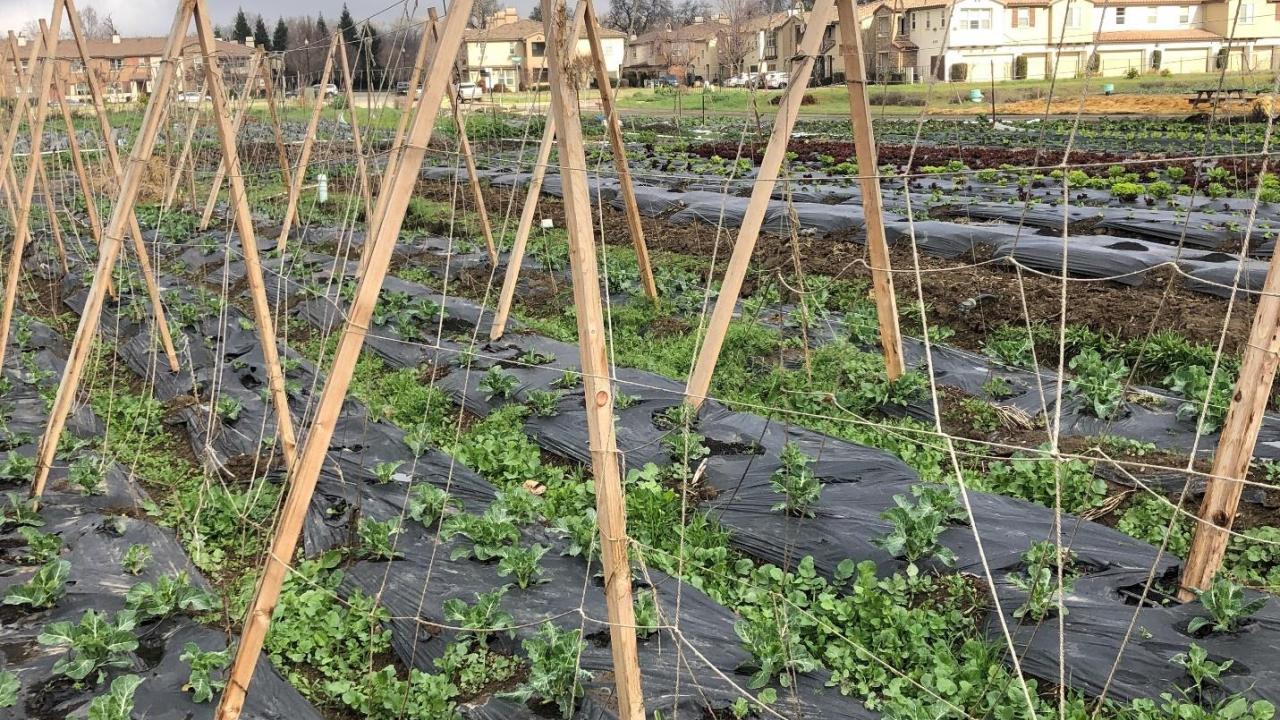
Archie Jarman: An Evaluation of Refugee farmers in the Sacramento Valley to Inform a USDA-funded Food Safety Training Program
The International Rescue Committee (IRC) in Sacramento, in partnership with University of California, Davis (UC Davis); Community Alliance with Family Farmers (CAFF); and University of California Cooperative Extension (UCCE), received funding from the United States Department of Agriculture (USDA) for a project titled, Expanded Refugee and Immigrant Food Safety Outreach Project in Sacramento. According to the proposal, the project “will expand food safety education and training to farmers belonging to marginalized groups in the Sacramento region.” Specifically, the marginalized groups are refugee farmers growing fruits and vegetables on relatively small pieces of land.
To inform the design, content, and instruction methodology, interviews, funded by the Jastro Fellowship, were conducted with Iraqi, Sudanese, Nepali/Bhutanese, and lu Mien farmers in the Sacramento valley. The semi-structured interview included questions specifically addressing factors that would affect the adoption of improved food safety practices by the refugee farmers – barriers to adoption, food safety needs and awareness, preferred learning methods, and social impact assessment.

After interviewing fifteen farmers, some of the key food safety findings were that among the Sudanese, Iraqi, and Nepali/Bhutanese farmers there is a strong association between food safe and organic and in the lu Mien grower group there is a strong correlation between food safety and pesticide usage. In both instances, among all groups, was a general omission of the terms pathogen, microbial, or bacteria in relation to contamination and food safety. To clarify, the majority of the farmers particularly highlighted the importance of hygiene - personal, produce, and on the farm - however only one farmer mentioned the term “bacteria.” Certainly, safe pesticide-use is a major aspect of food safety (and organic growing does include not using synthetic pesticides), however for the training content, it was recommended to the training providers to highlight bacterial and pathogen vectors for contamination as a means to fully contextualize why the hygienic practices the farmers already implement are critical.
In terms of learning preferences, a key finding among the lu Mien growing group is their strong reliance on their peers to learn new agricultural techniques. This learning process included either observing their peers, asking their peers, or working alongside their peers, then trialing the new techniques on their own farm. This finding is supported by outside, sociological research on lu Mien communities which highlight the lasting influence of their clan-based society in their origin countries, Cambodia and Laos. Additionally, the Iraqi, Sudanese, and Nepali/Bhutanese farmer groups consistently referenced observing then trialing as the learning methodology for how they learned how to farm as children. Considering these findings, it was recommended that the food safety training incorporates two components - if possible considering constraints due to COVID - working in small groups to practice new techniques and to provide time in the training to trial the techniques by hand.

No significant barriers to adoption were illuminated in the interviews. In terms of social impact, there was a considerable portion of the interviewed farmers that consider themselves the primary grower, and therefore would be primarily responsible for implementing new food safety practices. This social impact finding has two implications for the training – that the food safety trainers need to be certain that these lead growers attend the training and that there needs to be some recognition that these individuals may have a limited capacity to implement an overwhelming amount of new approaches or food safety practices.
With the funding from Jastro, the information gathered from these interviews is a resource for the designers and implementers of the planned food safety training so the training can meet the needs of the refugee farmers, both learning and food-safety related needs, and promote the adoption of beneficial food safety practices for their families, their consumers and themselves.